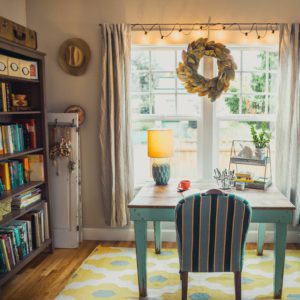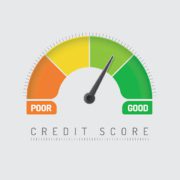3 Tips to Buy a Vacation Home
Have you always dreamed of owning a cottage by the lake or a cabin in the woods? Buying a second or vacation home can make that a reality – but there are some things to know before you start shopping.
 Maybe you love heading Up North every weekend and want your own place on the bay (which bay is up to you). Or perhaps you want to retire to a beach in Florida and want to buy your home now and rent it out to make some money until then. Either way, you’re thinking about buying a second home – and that’s a bit different than buying your first home or any other primary residence you’ve had. In this article, we’ll tell you why.
Maybe you love heading Up North every weekend and want your own place on the bay (which bay is up to you). Or perhaps you want to retire to a beach in Florida and want to buy your home now and rent it out to make some money until then. Either way, you’re thinking about buying a second home – and that’s a bit different than buying your first home or any other primary residence you’ve had. In this article, we’ll tell you why.
1. Your Mortgage Might Be More Expensive
Your primary home (where you live most of the year) often carries less risk for mortgage lenders; a major reason is that it’s your only mortgage payment, so you’re less likely to strain your finances and default on it. Thus, primary residences usually get more favorable loan terms, with lower credit scores, higher debt-to-income ratios, and less money required for the down payment.
The flip side, of course, is that vacation homes come with stricter loan requirements and higher mortgage interest rates (to offset the greater risk). You also won’t be eligible for some governmental loan assistance programs. So, while the monthly payment may not match that of your main residence, this may be a more expensive loan in terms of interest rates.
As a side note, look for a lender that provide second home loans regularly – some lenders even specialize in them. They’re likely to be able to help you find the best deal.
2. Vacation Rental Homes Are Not the Same as Vacation Homes
No problem about the mortgage, right? You can always rent out your second home to cover the cost.
Except that vacation rentals are quite different from vacation homes in the mortgage world – and to many local authorities.
If you plan on renting out your vacation home on the regular and using this income to cover your mortgage costs, you’ve moved into the investment property zone. This comes with different requirements than a simple second home; depending on your mortgage terms, it might even violate your agreement with your lender if you rent the home out.
So if this is your plan, discuss it with your loan officer before you start the paperwork. You should also make sure that the location of your home allows vacation rentals; some popular vacation spots are putting restrictions on these “short-term” arrangements.
3. Make Sure You Meet the Definition of a Vacation Home
There are some other requirements that come along with vacation homes. Obviously, you won’t be staying in it full-time, but you have to stay in it a stated number of days per year. And some lenders might stipulate that your vacation home is a certain distance from your main home; a vacation home in your neighborhood will look more like a rental property to most loan officers. Talk this over with your lender as well.
Before You Shop for a Vacation Home, Shop for a Mortgage
Your mortgage will impact how much vacation home you can afford, so talk with your mortgage lender before you start looking around. At Michigan Mortgage, we work hard to find the right loan for each individual customer.











